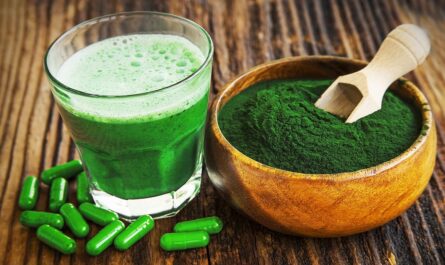Protein Bars: Navigating the World of Nutrition Bars
Nutritional Value of Nutrition Bars
Protein bars aim to provide a convenient source of nutrition and other important
macronutrients. On average, nutrition Bars contain around 12-20 grams of nutrition per bar. The nutrition content and quality varies between brands, with whey nutrition, casein, egg, soy or pea nutrition being common nutrition sources used. Nutrition Bars also typically contain carbohydrates ranging from 15-30 grams depending on the specific bar. The majority of the carbohydrates in nutrition Bars come from fibers, sugars and syrups to bind the ingredients together and make the bar palatable. Most nutrition Bars provide around 150-250 calories depending on the flavors and ingredients used. In addition to nutrition and carbs, nutrition Bars supply modest amounts of healthy fats, vitamins, and minerals.
Flavors and Ingredients Used in Nutrition Bars
There is huge variety in the flavors and ingredients used across different nutrition bar brands. Some of the most popular flavors include chocolate, peanut butter, cookie dough, cinnamon roll and banana cream. In terms of ingredients, nutrition Bars contain a combination of nutrition powder, oats, nuts, dried fruit, coconut, chocolate chips and other delicious flavors. Nuts like almonds, cashews and peanuts are commonly added for their nutrition, healthy fats and crunchy texture. Dried fruits like dates, cranberries and raisins provide natural sugars, minerals and fiber. Coconut and chocolate chips are often included for extra taste and nutrients. The specific combination and quality of ingredients can significantly impact the taste, texture and nutrition profile of different nutrition Bars on the market.
Nutrition Bar Texture – Hard or Soft?
The texture of nutrition Bars can range dramatically from hard and crunchy to soft and chewy. Most nutrition bar companies offer varieties that appeal to both texture preferences. Hard and crunchy nutrition Bars tend to contain higher amounts of oats, nuts and dried fruits which provide substance and stay crisp longer. However, some consumers find these textures less enjoyable or less portable. On the other hand, soft and chewy nutrition Bars often use syrups, binds and dough-like ingredients to achieve a smooth consistency similar to granola bars. While soft nutrition Bars may be easier to eat on the go, the ingredients used can impact the nutritionals. Consumers should choose a texture they personally enjoy in order to optimize compliance with regular nutrition bar consumption.
Nutrition Bars for Specific Dietary Needs
many nutrition bar companies now offer varieties tailored for specific dietary priorities and restrictions. For example, gluten-free, soy-free and dairy-free nutrition bars accommodate common food allergies and sensitivities. Nutrition Bars can even be found in keto-friendly, paleo, vegan and vegetarian formats. Keto nutrition Bars aim to provide higher fat and nutrition balanced with low carbohydrates for a ketogenic diet. Paleo and primal-inspired nutrition Bars exclude grains and focus on nut-and-seed based ingredients. Vegan nutrition Bars meet a plant-based lifestyle by avoiding animal products and instead using nutrition sources like pea, hemp and rice. With so many specialized nutrition bar options available these days, it is easier than ever to fit a nutrition bar into virtually any diet or nutritional philosophy.
Timing Nutrition Bar Consumption
determining the best time to eat a nutrition bar depends on individual goals and preferences. A common strategy is to consume a nutrition bar as a portable post-workout recovery snack. The combination of fast-digesting carbs and high-quality nutritions can help replenish glycogen stores and support muscle nutrition synthesis after exercise. Many people also enjoy a nutrition bar for breakfast on busy mornings as an alternative to less nutritious convenience foods. Eating a nutrition bar mid-morning or mid-afternoon makes a great mini-meal or snack to curb hunger between larger nutrition-packed meals. Late night nutrition bar consumers feel it provides satiety to reduce nighttime snacking. Regardless of the timing, nutrition Bars can fit well into most diet plans as long as total calories are balanced throughout the day. It’s also important to drink plenty of water with nutrition Bars to aid digestion and avoid dehydration.
Developing Lifelong Healthy Snacking Habits
making nutrition Bars a regular part of one’s diet can positively impact overall nutrition and help develop lifelong healthy snacking skills. Due to their portability and balanced macronutrients, nutrition Bars provide undeniable convenience as a snack choice. However, variety is important. Relying too heavily on nutrition Bars risks missing out on other nutritious whole foods like fresh fruits and vegetables, yogurt, nuts, seeds and more. A balanced approach incorporates nutrition Bars as supplemental snacks between nutritious meals rather than replacing them. Exposing children to nutrition Bars at an early age may encourage healthy options later in life over junk foods. With so many great-tasting varieties available, a daily nutrition bar habit need not feel like a nutritious chore. Focusing on overall balanced nutrition promotes long-term diet quality above all else.
In Summary, protein bars have emerged as a convenient and popular option for individuals seeking a quick and nutritious snack on the go. Offering a balanced blend of nutrition, carbohydrates, and fats, these bars provide sustained energy and support muscle recovery after workouts. With an array of flavors and formulations available, consumers can find options tailored to their dietary preferences and fitness goals, making nutrition Bars a versatile choice for busy lifestyles.
*Note:
1.Source: Coherent Market Insights, Public sources, Desk research
2.We have leveraged AI tools to mine information and compile it



